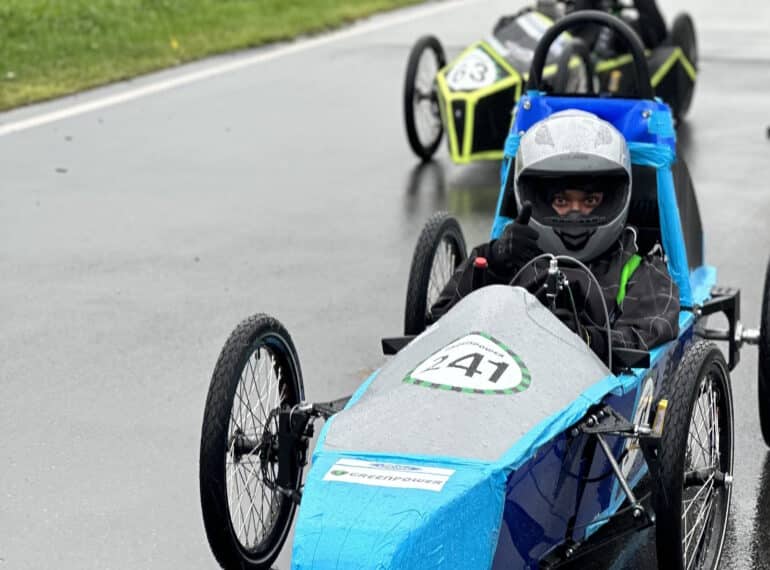
After two-and-a-half years of hard work, patience and perseverance, an electric car built by QE’s first Greenpower team overcame both mechanical challenges and terrible weather to perform strongly against much more experienced competitors in its first race.
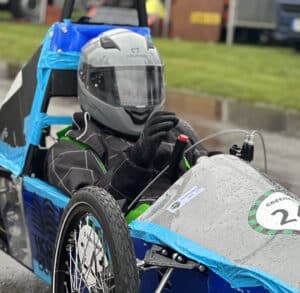 Having gathered information at the Dunsfold Park track in Surrey early in September, the Year 11 team travelled to Castle Combe in Wiltshire for their first competitive outing.
Having gathered information at the Dunsfold Park track in Surrey early in September, the Year 11 team travelled to Castle Combe in Wiltshire for their first competitive outing.
A mechanical failure in the first race threatened to scupper their efforts, but the pit crew overcame the odds to get the car – called New Horizon – ready for the starting grid just a couple of minutes before the start of the second, and final, F24 race of the day.
Congratulating the team, Head of Digital Teaching and Learning Michael Noonan said: “Torrential rain was abundant, and while many other cars either could not hold the track, or simply retired, our team stuck to their task: in the second race, they finished a highly respectable 44th out of 79 competitors – a feat all the more impressive given that they carried out an extra driver swap to give all our students a chance to drive.”
The event was one of a series of races run by the Greenpower Education Trust, a UK-based charity which aims to get young people enthusiastic about science and engineering.
The boys planned, built and refined the car using a Greenpower kit. Having promoted the car themselves, they won sponsorship from Horizon Builders, a North London construction, decorating and property maintenance company.
“Using the experience gained at Dunsfold Park, home to the BBC’s Top Gear, the students spent many late evenings (including a few quick runs around the School site) testing braking, circuitry, and speed,” said Mr Noonan.
Castle Combe is some 115 miles (186km) from the School, so the 12 team members had a 5.15am Sunday morning start on the day of the event. “They arrived in Wiltshire expecting a small crowd, given the early hour, but were instead greeted by the awesome sight of a total of 79 F24 (age 12–16) and 24 F24+ (age 16–24) teams in full flight with their preparations for the race day ahead. The sheer challenge which Greenpower would entail suddenly dawned on both staff and students!”
 The boys duly threw themselves into preparing for the rigorous scrutineering process. “Following some adjustments to the braking system, and with the absolute minimum amount of time left, the team passed all tests, with only small notes on adjustments required for future races.
The boys duly threw themselves into preparing for the rigorous scrutineering process. “Following some adjustments to the braking system, and with the absolute minimum amount of time left, the team passed all tests, with only small notes on adjustments required for future races.
“From here, it was on to their first practice session – in some cases, students’ first experience of driving this car. The car, number 241 on the day, seemed to be performing admirably and was operating without fault. Each driver managed his session without any major issues, although it quickly because apparent that conditions were to worsen over the day, and that our performance would have to be adjusted to account for the wet weather.
“Following minor tweaks in the ‘paddock’, which had all the necessary tools and equipment, the first sets of drivers for the first race took to the grid. As the track lights signalled the commencement of the race, our relatively inexperienced team seemed to be punching above their weight; the last-minute aerodynamic and cooling adjustments provided for smooth racing.”
“It was at the point of driver change that a minor mechanical noise was noticed, and an inspection took place. With no obvious issue evident, the new driver took over and upon his first acceleration he managed to delink the chain! What had happened was that vibrations across the rear axle had loosened grub screws. With this looseness, the axle was ‘coasting’ left to right (which would slow the drive down enormously), and when our second driver took his seat and hit the throttle, the chain lodged against the chain guard at the link point and immediately disconnected!”
“The team was faced with disaster,” said Mr Noonan. “Having only covered 9.25 kilometres in their first race, they had to bow out just before the halfway point and immediately go about repairing the damage caused.”
With only two hours between races, the team had to strip back all mechanical items and re-assemble them to produce a working car. “Through sheer grit, determination and thanks in no small part to the kindness of other teams who happily supplied spare parts, New Horizon was race-ready with around two minutes to spare.”
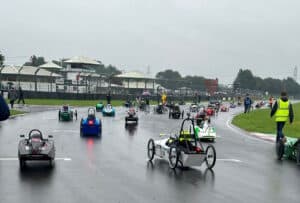 Buoyed by their success in reaching the tight deadline, the boys set about trying to better their first race score and duly achieved this, ending the day with a score of 22.59. (Greenpower F24 race results are determined by a formula based on furthest distance travelled within the 90-minute time period, taking the better figure from the two races.)
Buoyed by their success in reaching the tight deadline, the boys set about trying to better their first race score and duly achieved this, ending the day with a score of 22.59. (Greenpower F24 race results are determined by a formula based on furthest distance travelled within the 90-minute time period, taking the better figure from the two races.)
Afterwards, team members reflected on the day. Adithya Raghuraman said the team had been “nervous from anticipation leading up to the day”, but that it had proved a “memorable” experience. “Even the journey to the track was incredible, despite it being brutally early in the morning. Getting to meet and collaborate with other schools, scavenge for parts from fellow teams, and enthusiastically wait for our car to come around near our pit each lap, were all valuable chances to learn, compete, and most importantly, enjoy.”
His fellow teammate, Daksh Vinnakota, and Year 10 apprentice Keeyan Shah were both also thrilled with the experience: it had been “a good opportunity to finally demonstrate our work over the past two years in a competitive situation,” said Daksh, with Keeyan adding that the day had provided “a unique insight into professional racing”.
Although after the start of the 2023 Autumn Term , the Castle Combe races were in fact the final regional round in the 2022–2023 Greenpower season. The QE team are now handing over to Year 10 boys, who were their apprentices in the 2022-23 season, and will be mentoring and supporting them throughout the rest of the new season.
 “As the season unfolds, the 2023–24 Greenpower team will be looking for around four willing Greenpower apprentices from Year 9 to join the cause and ‘upskill’ with a view to competing in Year 10,” said Mr Noonan.
“As the season unfolds, the 2023–24 Greenpower team will be looking for around four willing Greenpower apprentices from Year 9 to join the cause and ‘upskill’ with a view to competing in Year 10,” said Mr Noonan.
“This year’s team are already plotting a climb up the national leaderboard, which if they are fortuitous, will result in their participation at the Goodwood World Finals in October 2024.”
He added that the outgoing team had thanked their sponsors and the staff involved – Science teacher Timothy Panis and Technology assistant Felix Chillingworth, as well as himself – “for their support in finally seeing the Queen Elizabeth’s Greenpower team make their presence felt”.
Team members 2022–2023 season (current Year 11)
Soham Kale
Siddarth Oruganti
Rudra Patel
Adithya Raghuraman
Kavin Rameshshanker
Siraj Sidhu
Vinujan Sivakumar
Binaga Solangaarachchi
Ishanth Thangella
Daksh Vinnakota
Ethan Dias
Danyl Malchyk
Apprentices 2022–2023 season (current Year 10)
Taha Sebbar
Keeyan Shah
Dev Malde
Balaram Kataria
Yuvraj Patel
Ayush Saha
Parv Gandhi
Shashank Devaguptapu
Akshaj Vyas

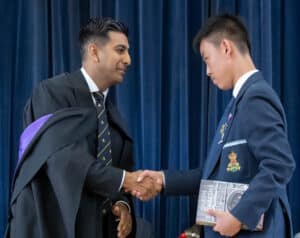 His colourful depiction of young people taking action to create a greener planet – entitled Friends of the Earth – took third place in the Climate Art Prize contest organised by Imperial College London’s Grantham Institute.
His colourful depiction of young people taking action to create a greener planet – entitled Friends of the Earth – took third place in the Climate Art Prize contest organised by Imperial College London’s Grantham Institute.
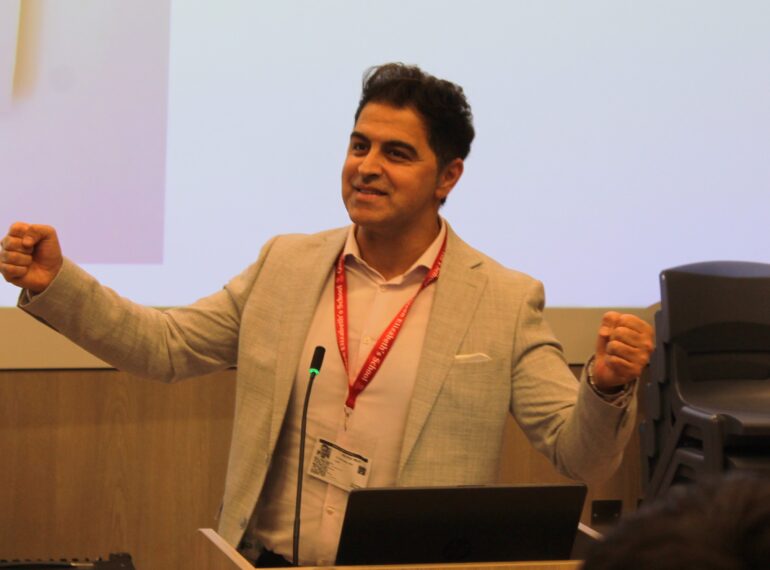
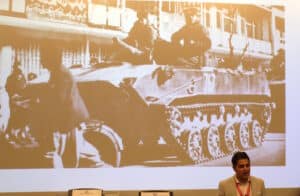 Over the past 24 years, he has studied at Cambridge, Imperial and Harvard, qualified as a doctor, been recognised as a World Health Organisation digital health expert and won numerous awards.
Over the past 24 years, he has studied at Cambridge, Imperial and Harvard, qualified as a doctor, been recognised as a World Health Organisation digital health expert and won numerous awards.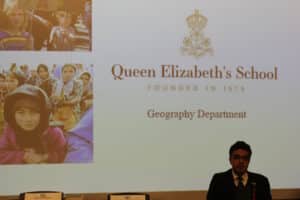 He impressed upon the Year 9s the value of always holding on to hope, even in the toughest of times, explaining how his dream of becoming a doctor fuelled him during his studies, which culminated in him eventually getting a scholarship at Harvard Medical School. He now works as a Accident and Emergency doctor in North West England.
He impressed upon the Year 9s the value of always holding on to hope, even in the toughest of times, explaining how his dream of becoming a doctor fuelled him during his studies, which culminated in him eventually getting a scholarship at Harvard Medical School. He now works as a Accident and Emergency doctor in North West England.
 Having gathered information at the Dunsfold Park track in Surrey early in September, the Year 11 team travelled to Castle Combe in Wiltshire for their first competitive outing.
Having gathered information at the Dunsfold Park track in Surrey early in September, the Year 11 team travelled to Castle Combe in Wiltshire for their first competitive outing. The boys duly threw themselves into preparing for the rigorous scrutineering process. “Following some adjustments to the braking system, and with the absolute minimum amount of time left, the team passed all tests, with only small notes on adjustments required for future races.
The boys duly threw themselves into preparing for the rigorous scrutineering process. “Following some adjustments to the braking system, and with the absolute minimum amount of time left, the team passed all tests, with only small notes on adjustments required for future races. Buoyed by their success in reaching the tight deadline, the boys set about trying to better their first race score and duly achieved this, ending the day with a score of 22.59. (Greenpower F24 race results are determined by a formula based on furthest distance travelled within the 90-minute time period, taking the better figure from the two races.)
Buoyed by their success in reaching the tight deadline, the boys set about trying to better their first race score and duly achieved this, ending the day with a score of 22.59. (Greenpower F24 race results are determined by a formula based on furthest distance travelled within the 90-minute time period, taking the better figure from the two races.) “As the season unfolds, the 2023–24 Greenpower team will be looking for around four willing Greenpower apprentices from Year 9 to join the cause and ‘upskill’ with a view to competing in Year 10,” said Mr Noonan.
“As the season unfolds, the 2023–24 Greenpower team will be looking for around four willing Greenpower apprentices from Year 9 to join the cause and ‘upskill’ with a view to competing in Year 10,” said Mr Noonan.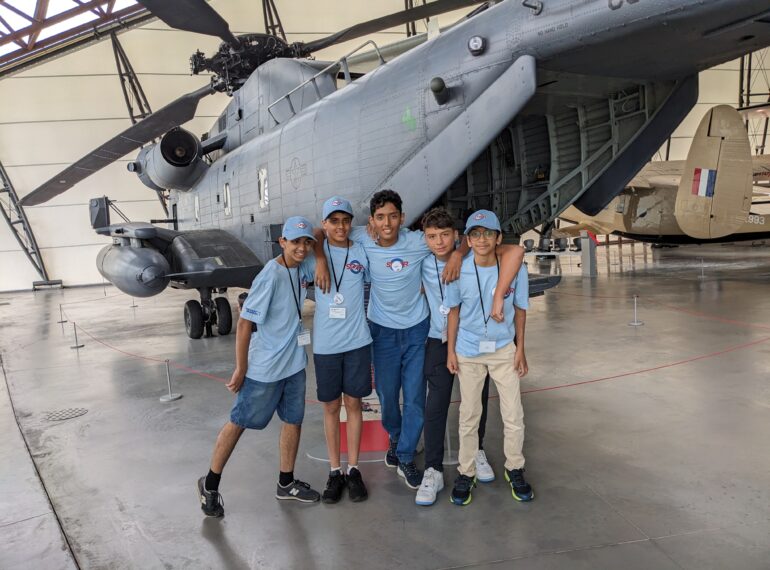
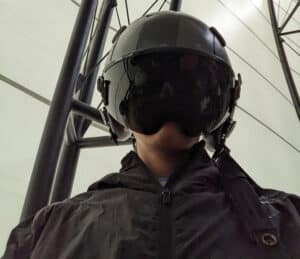 The group headed to Shropshire for the Summer Time Advanced Aerospace Residency (STAAR), at RAF Cosford, near Shifnal, and the nearby RAF Museum, learning from industry experts in a packed five-day programme.
The group headed to Shropshire for the Summer Time Advanced Aerospace Residency (STAAR), at RAF Cosford, near Shifnal, and the nearby RAF Museum, learning from industry experts in a packed five-day programme.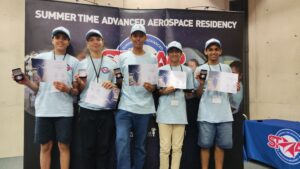 The QE five were among only 40 winners of the competition, which was open to those in Year 9 in 2022–2023. They were Keeyan Shah, Kyle Goldband, Neil Kulkarni, Keshav Aggarwal and Ishaan Mishra.
The QE five were among only 40 winners of the competition, which was open to those in Year 9 in 2022–2023. They were Keeyan Shah, Kyle Goldband, Neil Kulkarni, Keshav Aggarwal and Ishaan Mishra.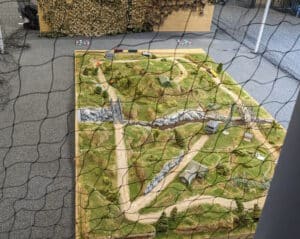 The competition to secure their places involved completing four STEM tasks relating to: decryption/encryption; reconnaissance; creating a CAD model, and creating a team presentation.
The competition to secure their places involved completing four STEM tasks relating to: decryption/encryption; reconnaissance; creating a CAD model, and creating a team presentation.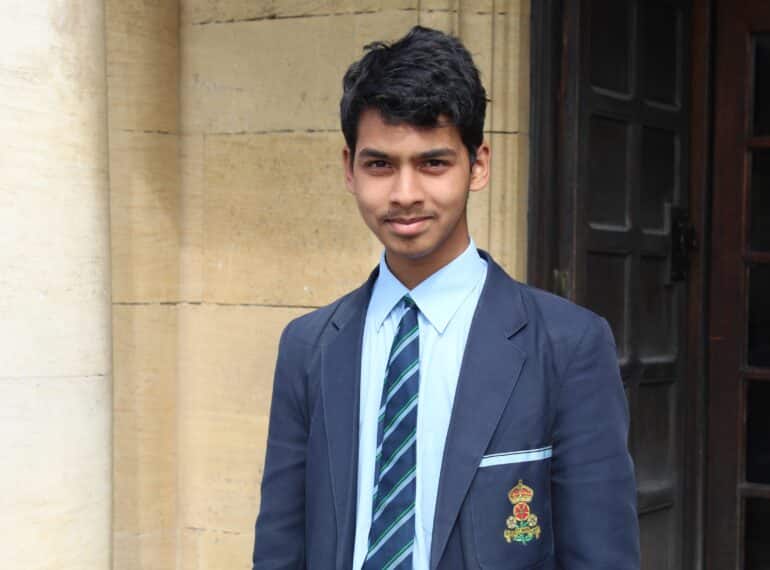
 The final round, a multiple-choice online examination with 20 questions, was more about astrophysics knowledge. To prepare, he looked at previous years’ questions and also read around the subject. The round was sat online at home, but recorded to prove there had been no cheating.
The final round, a multiple-choice online examination with 20 questions, was more about astrophysics knowledge. To prepare, he looked at previous years’ questions and also read around the subject. The round was sat online at home, but recorded to prove there had been no cheating.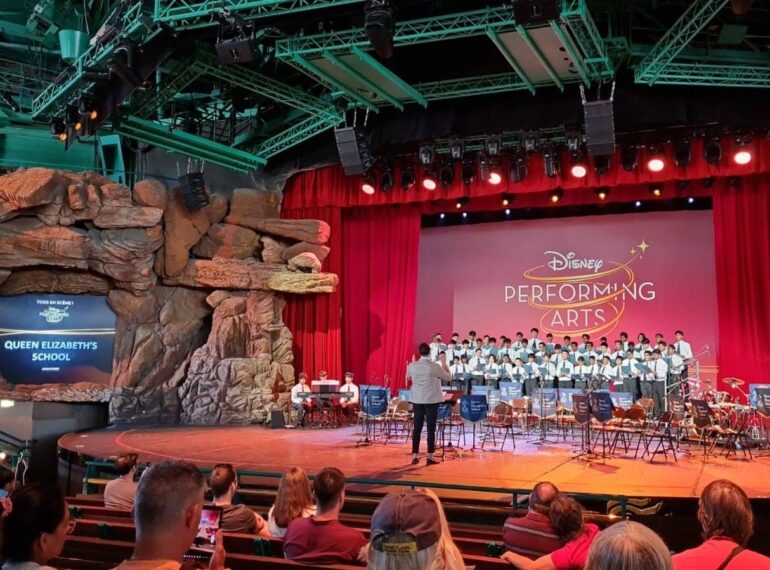
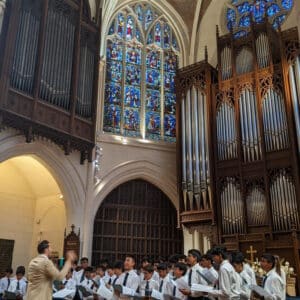 Fifty-two boys from Years 8–13 combined concerts with seeing the sights of Paris during their five-day tour.
Fifty-two boys from Years 8–13 combined concerts with seeing the sights of Paris during their five-day tour.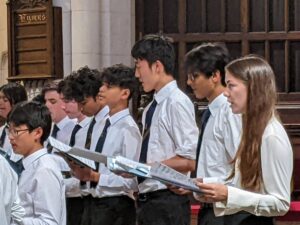 Travelling by coach and ferry, the boys’ first visit was to the Chocolaterie Beussent in Normandy, where they were told on a guided tour how chocolate is made from cocoa beans and learned the history of the small company.
Travelling by coach and ferry, the boys’ first visit was to the Chocolaterie Beussent in Normandy, where they were told on a guided tour how chocolate is made from cocoa beans and learned the history of the small company.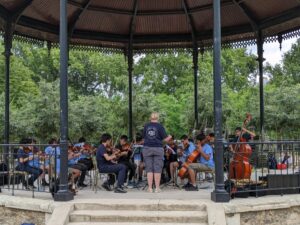 On the same busy day, they went on a walking tour, seeing the restoration work going on at Notre Dame following the disastrous fire and visiting the Louvre, Place de la Concorde, the Tuileries and the Champs-Élysées.
On the same busy day, they went on a walking tour, seeing the restoration work going on at Notre Dame following the disastrous fire and visiting the Louvre, Place de la Concorde, the Tuileries and the Champs-Élysées.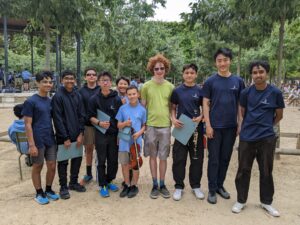 On the final day, they climbed the Arc de Triomphe before setting off home, where they experienced a four-hour delay – the only hitch in the packed programme.
On the final day, they climbed the Arc de Triomphe before setting off home, where they experienced a four-hour delay – the only hitch in the packed programme.